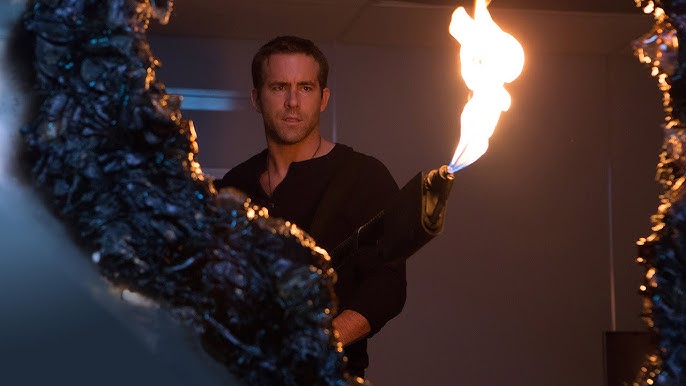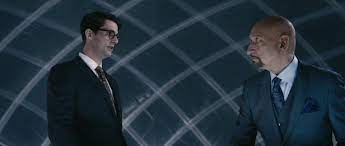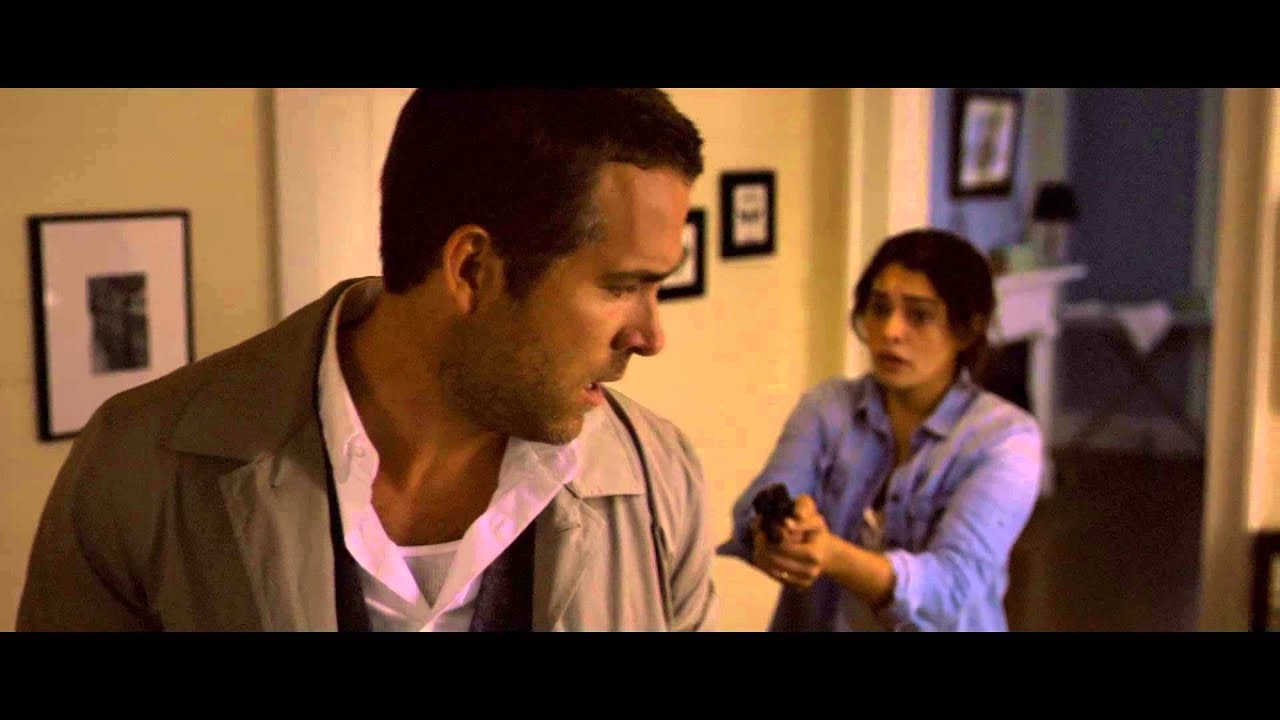🎬 Self/less (2015)
- thaiduong
- January 8, 2025

“Self/less” (2015): An Intriguing Concept Let Down by Formulaic Execution
https://www.youtube.com/watch?v=3agaVwt0tb8
Directed by Tarsem Singh, Self/less (2015) is a sci-fi thriller with a tantalizing premise: the ability to transfer one’s consciousness into a younger body, effectively achieving a form of immortality. Starring Ryan Reynolds and Ben Kingsley, the film explores themes of identity, morality, and the consequences of playing God. Despite its thought-provoking concept, Self/less ultimately falls short of its potential, bogged down by a formulaic narrative and underdeveloped characters.
Plot Summary
Damian Hale (Ben Kingsley) is a wealthy and powerful real estate tycoon whose life is nearing its end due to terminal cancer. Unwilling to accept his mortality, Damian turns to a secretive organization led by Dr. Albright (Matthew Goode), who offers him a radical solution: “shedding.” This process transfers Damian’s consciousness into a genetically engineered, younger body (Ryan Reynolds), giving him a second chance at life.
Reborn as “Edward,” Damian enjoys the perks of his new body, including physical vigor and a lavish lifestyle. However, he begins to experience vivid and disturbing flashbacks of another life. As Damian delves deeper, he discovers that his new body wasn’t grown in a lab as promised, but belonged to a man named Mark, who sacrificed himself to save his family. Guilt-ridden and determined to uncover the truth, Damian embarks on a journey that pits him against Albright and his powerful organization.
Themes: Identity, Morality, and Mortality
At its core, Self/less explores the ethical dilemmas of extending life at the cost of another’s. Damian’s journey forces him to confront his selfishness, questioning whether his wealth and power give him the right to exploit others for his own survival.
The film also grapples with the concept of identity. Damian’s consciousness inhabits Mark’s body, blurring the lines between the two men. The flashbacks, triggered by physical and emotional stimuli, suggest that the body retains an imprint of its previous owner. This raises intriguing questions about the relationship between mind and body, though the film doesn’t fully explore these ideas.
Mortality looms large throughout the narrative. Damian begins as a man desperate to avoid death, but his journey leads him to reevaluate what it means to live a meaningful life. This thematic arc has potential, but its emotional impact is undermined by a lack of subtlety in the storytelling.
Character Performances
Ryan Reynolds as Damian/Edward
Reynolds delivers a solid performance, balancing the character’s initial arrogance with his growing humanity. While Reynolds excels in the action sequences, his portrayal lacks the emotional depth needed to fully convey Damian’s internal struggle. The transition from Kingsley’s gruff and imposing demeanor to Reynolds’ more approachable persona feels jarring, and the film doesn’t do enough to bridge the gap between the two actors’ interpretations of the character.
Ben Kingsley as Damian Hale
Ben Kingsley brings gravitas to the role of Damian Hale, though his screen time is limited to the film’s opening act. His portrayal of a powerful yet vulnerable man facing his mortality sets the stage for the story, but the character’s complexities are underexplored.
Matthew Goode as Dr. Albright
Matthew Goode is suitably menacing as Dr. Albright, the film’s primary antagonist. His calm demeanor and calculated manipulation make him a compelling figure, though his motivations and backstory are disappointingly shallow. Albright serves more as a plot device than a fully realized character, which diminishes the stakes of the conflict.
Natalie Martinez as Madeline
Natalie Martinez plays Madeline, Mark’s widow, who becomes an unwitting ally in Damian’s quest for redemption. Martinez brings warmth and vulnerability to the role, but her character is largely relegated to a supportive role, leaving her arc underdeveloped.
Action and Pacing
The film blends science fiction with action-thriller elements, resulting in a series of fast-paced set pieces. Chase sequences, shootouts, and hand-to-hand combat keep the narrative moving, but they often feel disconnected from the film’s more cerebral themes. The action is competently executed but lacks originality, relying on standard tropes that fail to leave a lasting impression.
The pacing is uneven, with the first act devoted to setting up the intriguing premise, followed by a second act bogged down by exposition and predictable twists. The final act shifts into action-heavy territory, abandoning the film’s philosophical underpinnings in favor of a conventional climax.
Visual and Cinematic Style
Director Tarsem Singh, known for his visually stunning films like The Fall and Immortals, takes a more restrained approach in Self/less. While the film features polished production design and sleek cinematography, it lacks the distinctive visual flair associated with Singh’s previous work. The futuristic elements, such as Albright’s high-tech laboratory, are aesthetically pleasing but feel generic and underutilized.
The New Orleans setting adds a sense of place, with its vibrant streets contrasting the sterile environments of Albright’s operations. However, the film’s visual language doesn’t fully capitalize on the dichotomy between Damian’s opulent past and Mark’s humble life.
Strengths and Weaknesses
Strengths:
- Intriguing Premise: The concept of consciousness transfer and its ethical implications is compelling, offering a fresh take on the sci-fi genre.
- Solid Performances: The cast, particularly Ryan Reynolds and Matthew Goode, delivers engaging performances.
- Themes of Identity and Mortality: The film touches on profound ideas, though it doesn’t fully develop them.
Weaknesses:
- Formulaic Execution: The narrative follows a predictable trajectory, sacrificing complexity for accessibility.
- Underdeveloped Characters: Many characters lack depth, reducing the emotional stakes of the story.
- Missed Opportunities: The film’s philosophical and moral questions are overshadowed by its emphasis on action and plot twists.

Themes Left Unexplored
Self/less introduces several thought-provoking ideas but fails to delve deeply into them:
- The Ethical Dilemma of Shedding: The film touches on the moral implications of transferring consciousness but doesn’t explore the broader societal impact of such technology.
- The Connection Between Body and Mind: Damian’s experience in Mark’s body raises questions about the role of physical identity in shaping consciousness, but these ideas are only superficially addressed.
- Class and Privilege: The story hints at the disparity between the wealthy elite, who can afford shedding, and the ordinary people whose lives are exploited, but it doesn’t examine this theme with any nuance.
Comparisons and Influences
Self/less draws comparisons to other films that explore similar themes, such as:
- Get Out (2017): Both films examine the exploitation of bodies and the loss of agency, though Get Out does so with more psychological and cultural depth.
- The Island (2005): Like Self/less, this film explores the ethical implications of using human bodies for personal gain, with a stronger focus on action and spectacle.
- Eternal Sunshine of the Spotless Mind (2004): While not directly about body transfer, this film delves into the interplay of memory and identity, offering a more emotionally resonant exploration.
Conclusion
Self/less (2015) is a film with a fascinating premise that promises more than it delivers. While its exploration of identity and mortality is intriguing, the film ultimately succumbs to genre clichés and formulaic storytelling. Tarsem Singh’s restrained direction and a strong cast keep the film watchable, but it lacks the depth and originality needed to fully realize its potential.
For viewers seeking an accessible sci-fi thriller with a few thought-provoking moments, Self/less offers entertainment. However, those hoping for a deeper exploration of its themes may find themselves disappointed. It’s a film that scratches the surface of its intriguing concept but never quite digs deep enough to leave a lasting impact.
Rating: 6.5/10